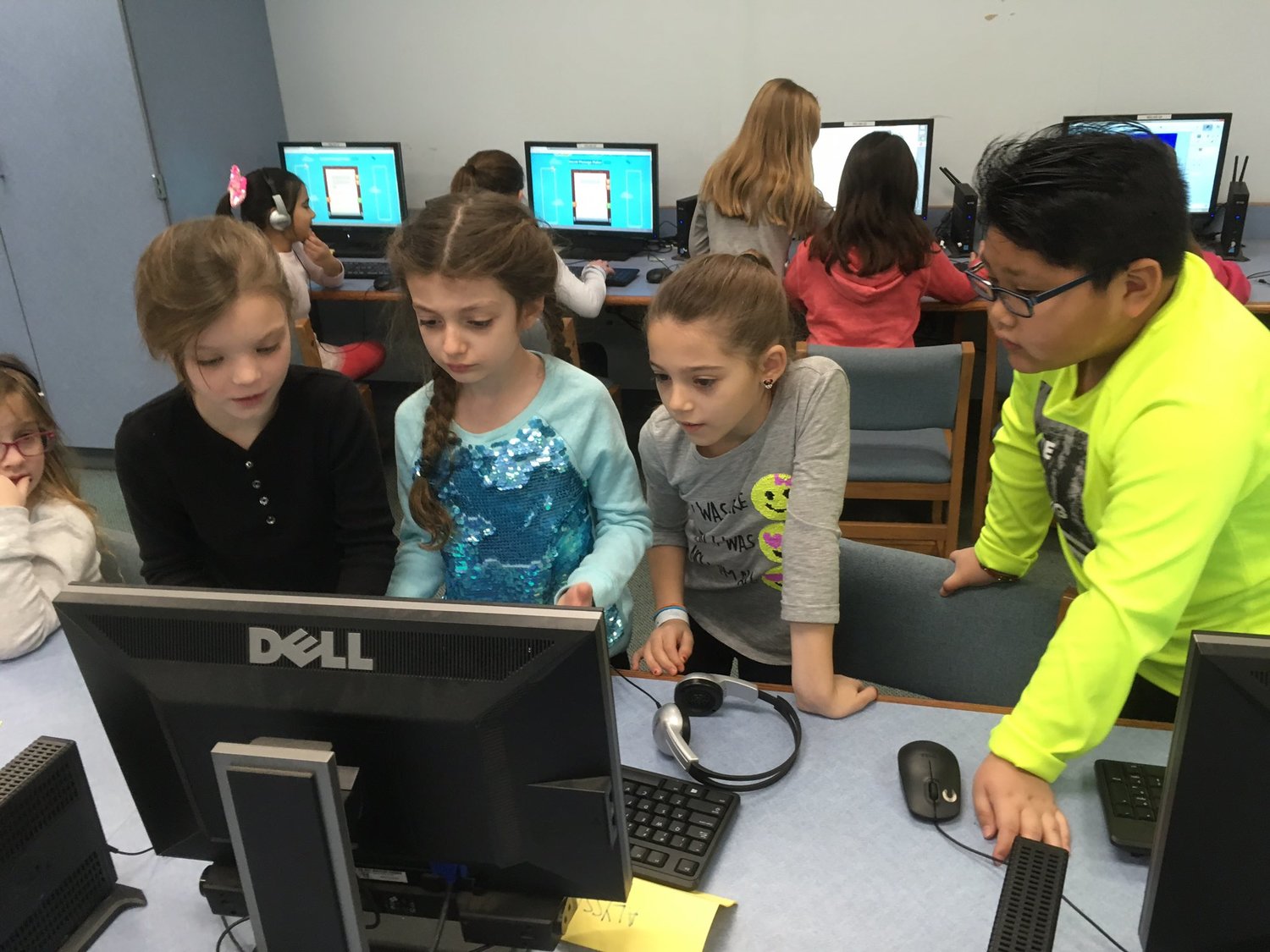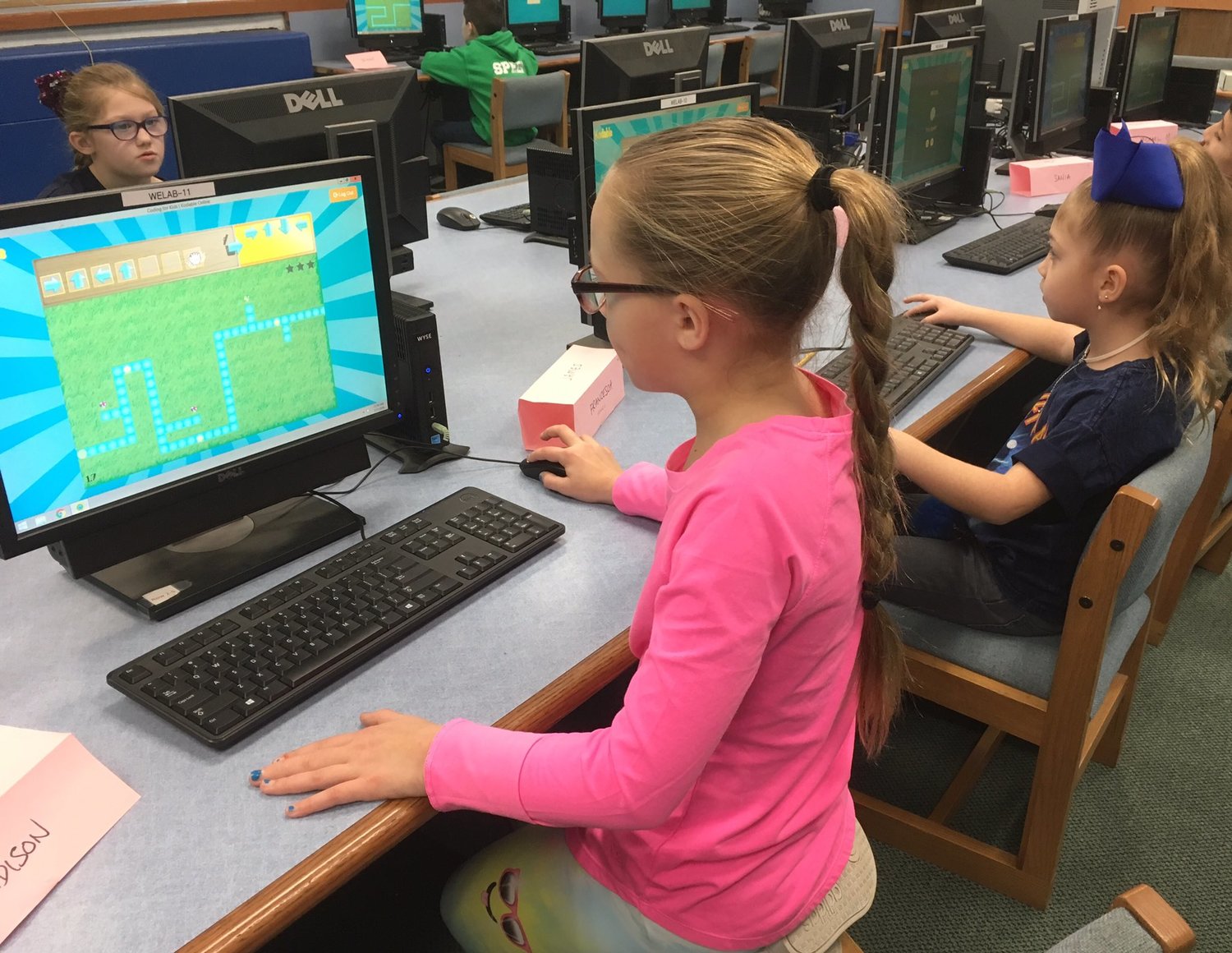Computer instruction subject of concern in Wantagh district
As the 2021-22 school year approaches, some parents in the Wantagh School District remain frustrated with the reconfiguration of computer instruction at the elementary level caused by Covid-19 and internal budget cuts.
Following the defeat of the proposed budget last May, Board of Education members sought feedback from the community and reduced the spending plan by $1.1 million. The approved $82.7 million budget decreased staff overall, including administrators, teachers and aides, Assistant Superintendent for Instruction Marc Ferris said.
Before the pandemic, district officials reviewed all educational programs, Ferris said. Because of limited computer resources, students in kindergarten to second grade received computer instruction once in a six-day cycle.
Then the pandemic struck, and Wantagh was forced to go remote. With the uncertainty of the pandemic, the district rerouted funding, froze many projects and distributed one Chromebook laptop to each student in kindergarten to fifth grade for remote instruction, Ferris said. By the following year, high school and middle school students also received Chromebooks.
Around June 2020, some parents wrote to the district, urging officials to provide students in kindergarten through second grade with additional computer instruction during the pandemic.
But as district officials discussed the possibility of in-person learning that summer, they were forced to modify instruction to keep students safe. Space was added between students’ seats, and class sizes were reduced to about 15 students per room, which required more teachers. This also led to the reconfiguration of the
computer instruction program.
It was an “unpopular decision” among many parents, former part-time computer instructor Henry Chiu said.
“Now that they had a Chromebook in every student’s hands ... teachers could take on the task of teaching their students computer instruction.”
In the fall of 2020, after teaching computer instruction at Wantagh and Mandalay elementary schools, Chiu lost his part-time position and was offered the role of fifth-grade teacher. He took on the position for the 2020-21 academic year. Chiu was let go at the end of the school year.
Fellow computer instructor Danielle Luke, who taught computer instruction at Forest Lake Elementary School, was also moved from her role. Luke now serves as one of two of the district’s computer support teachers who assist faculty members and children with online learning.
Parent Heather Cetina said she believes “it’s poor judgment on behalf of the district and lack of educational insightfulness to eliminate computer instruction at the elementary schools.
“Just because the kids appear to demonstrate a computer process using a tool doesn’t mean that they’ve mastered how to successfully use the technology in ways that are meaningful and relevant,” said Cetina, whose daughter Julia had Chiu as a fifth-grade teacher. “Those skills are gained by computer instruction.”
But Ferris said the reconfiguration is beneficial: Kindergarteners are now enrolled in more art courses and first- and second-graders have more music courses.
“This is an enhancement because we’re adding more music and art, and we’re integrating computers into daily instruction,” Ferris said.
Gina Passaro, of Wantagh, said the instruction that Chiu taught her son Antonio in first and second grades at Wantagh Elementary School was “invaluable.”
‘When the world shut down, I marveled at my son’s confidence and ease navigating online learning,” Passaro said. “When I questioned his skills, he just told me, ‘Oh, mom, Mr. Chiu taught me everything.”
Ferris said that implementation of the Chromebooks made it easier for staff to leverage technology. “The computers are not a subject area that you need a computer teacher. Art teachers can teach it; they just previously didn’t have computers in their room,” Ferris said.
But Chiu said: “I think there’s a misconception that elementary-level teachers can find time ... to integrate technology for their students and be fine,” Chiu said. “Not everyone is comfortable teaching [it].”
Further, the change could result in inconsistencies across student learning, Chiu said, which cuts across subjects.
Elementary and secondary teachers were offered basic and advanced computer training last summer, Ferris said.
Regardless, Chiu is grateful for his opportunity with the district and believes the pandemic has emphasized the need for computer literacy. “I think parents now understand that computer instruction is important, not just for K-2, but for third-, fourth- and fifth-graders too. ”









